Published June 24, 2019
Wes Harper is a product manager at GarbageDay and an experienced northern camper. In this article, Great Lakes Guide sits down with Wes to give our readers his top five tips for reducing waste while camping. Wes will also tell us about the GarbageDay, available in municipalities across Canada.
Picture this: You’re having an incredible time camping with friends and family, and the memories couldn’t get any better.
On the last day of your trip, you find yourself exhausted from all the fun and begin to dread the thought of having to pack your stuff and clean up the camp site. In the end, you find yourself with a whole lot of garbage and not enough bags to throw it all out.
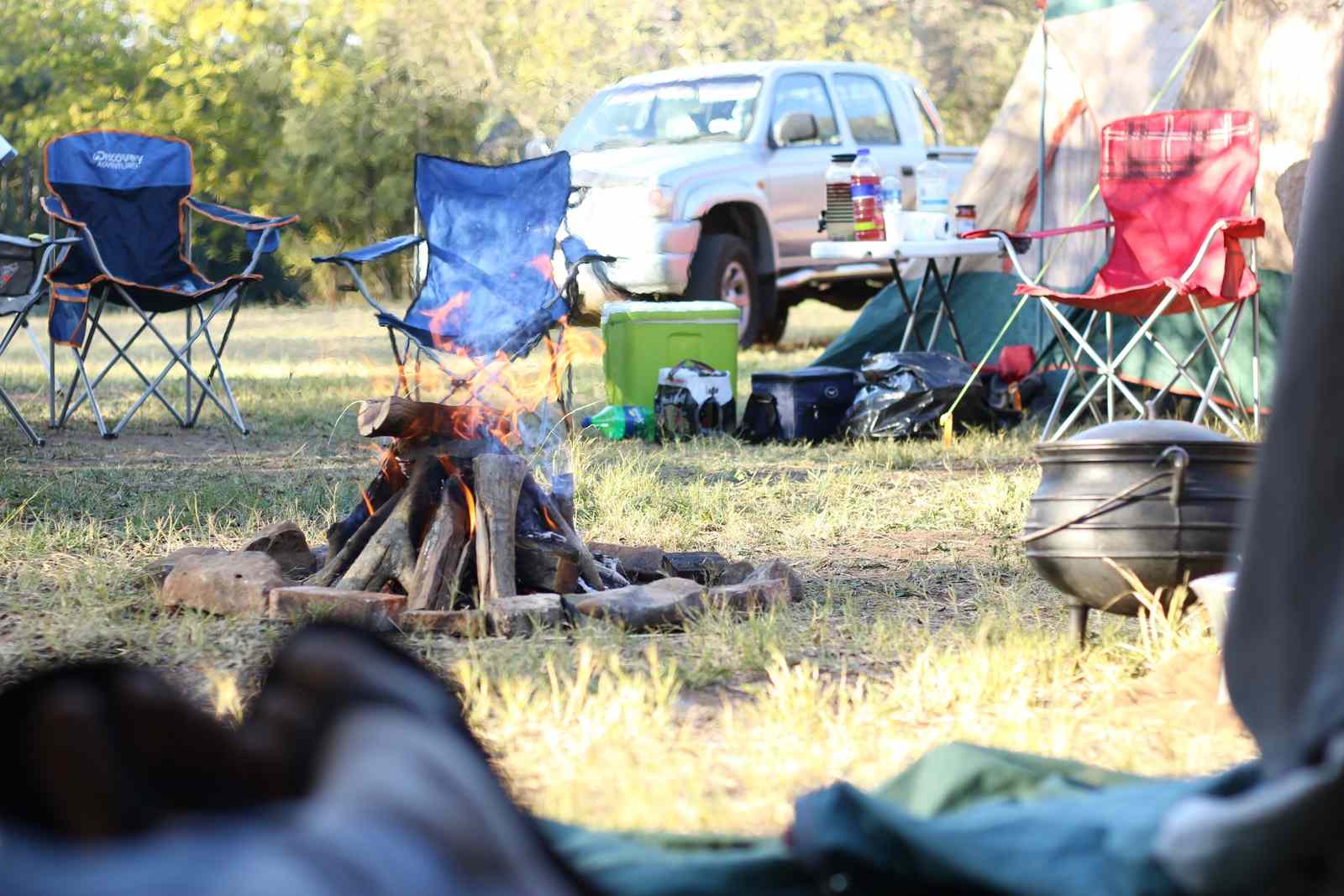
You want to be conscious of the environment, but you’re so frustrated that you decide to dump everything in the same place and forget about it. You leave with a slight sense of guilt and wish there was a better way to plan your trip in order to reduce the waste and enjoy your last minutes in the great outdoors.
If you can identify with this story, read on!
Top 5 Tips for Litterless Camping
1. If you’re new to camping, borrow equipment first
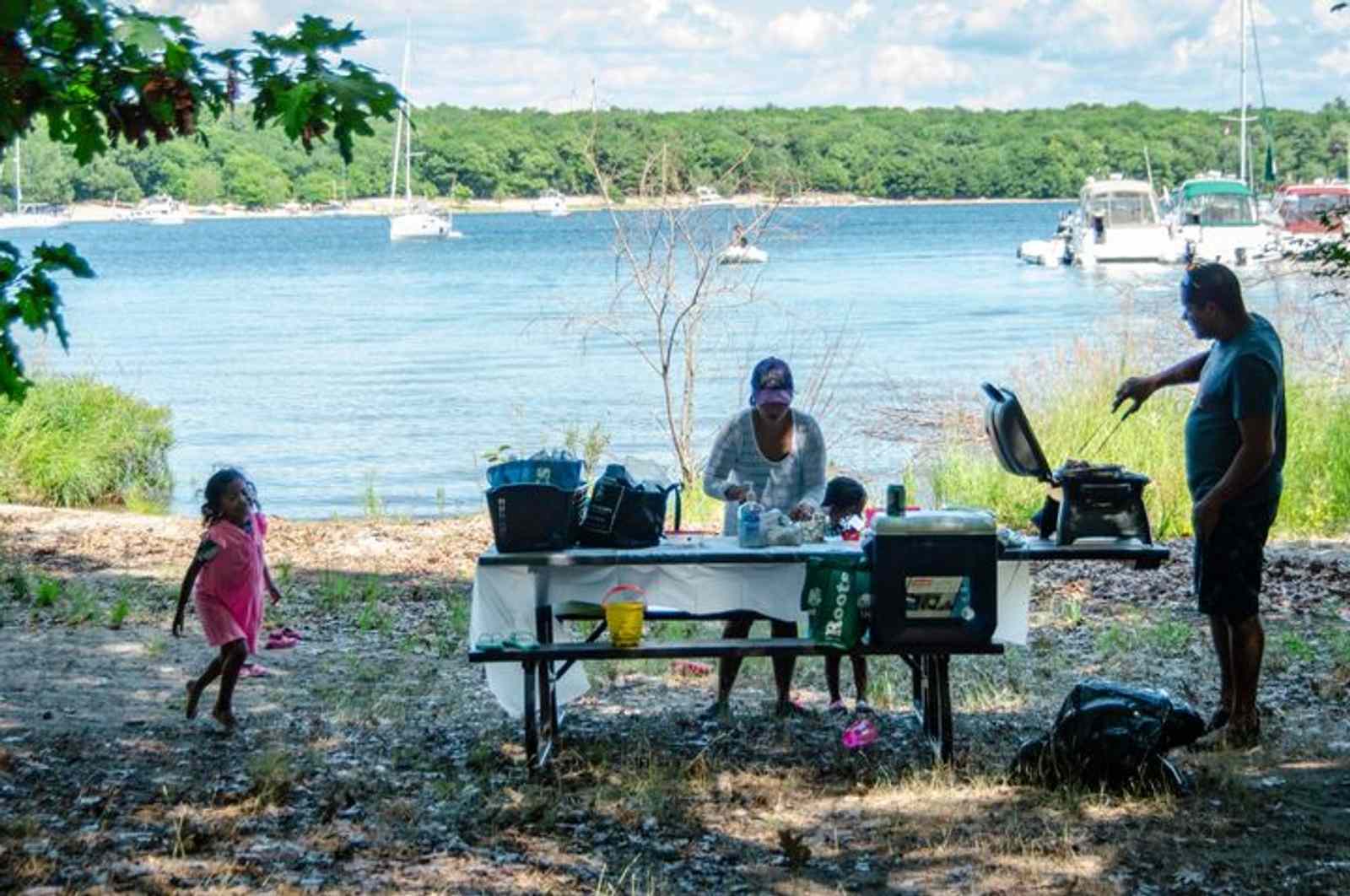
Camping requires a lot of gear and stuff in general. If you’re going to an area you’ve never visited before, or if you’re a beginner - you don’t need to buy everything! Many people new to camping buy equipment only to use it once or twice in their lives. Ask your family and friends. See if they have some of the stuff that you need. Borrowing equipment is a great way to reduce waste AND it’s obviously cheaper.
2. Invest in long-lasting gear
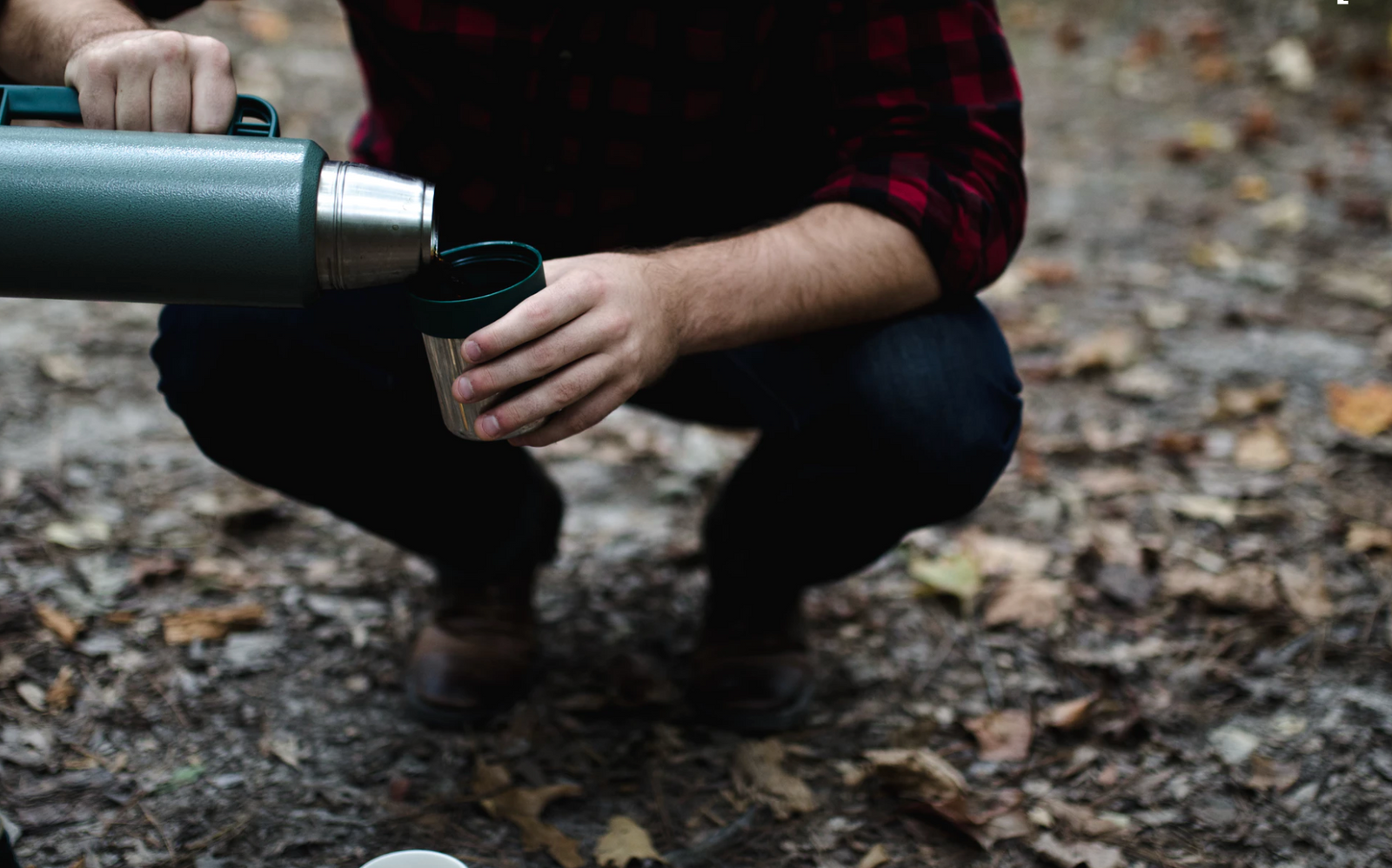
When asking your friends and family what you need, make sure also that those products are not going to break down on you immediately. Make sure they’re sturdy and they’re made to last. The shelf life of that item is more than once or twice. The longer you use it, the less waste gets created. If you need to buy it, purchase equipment that you can get the most use out of. You can also get gear that has recycled parts or components AND are made to last a long time.
3. Leave containers and boxes behind
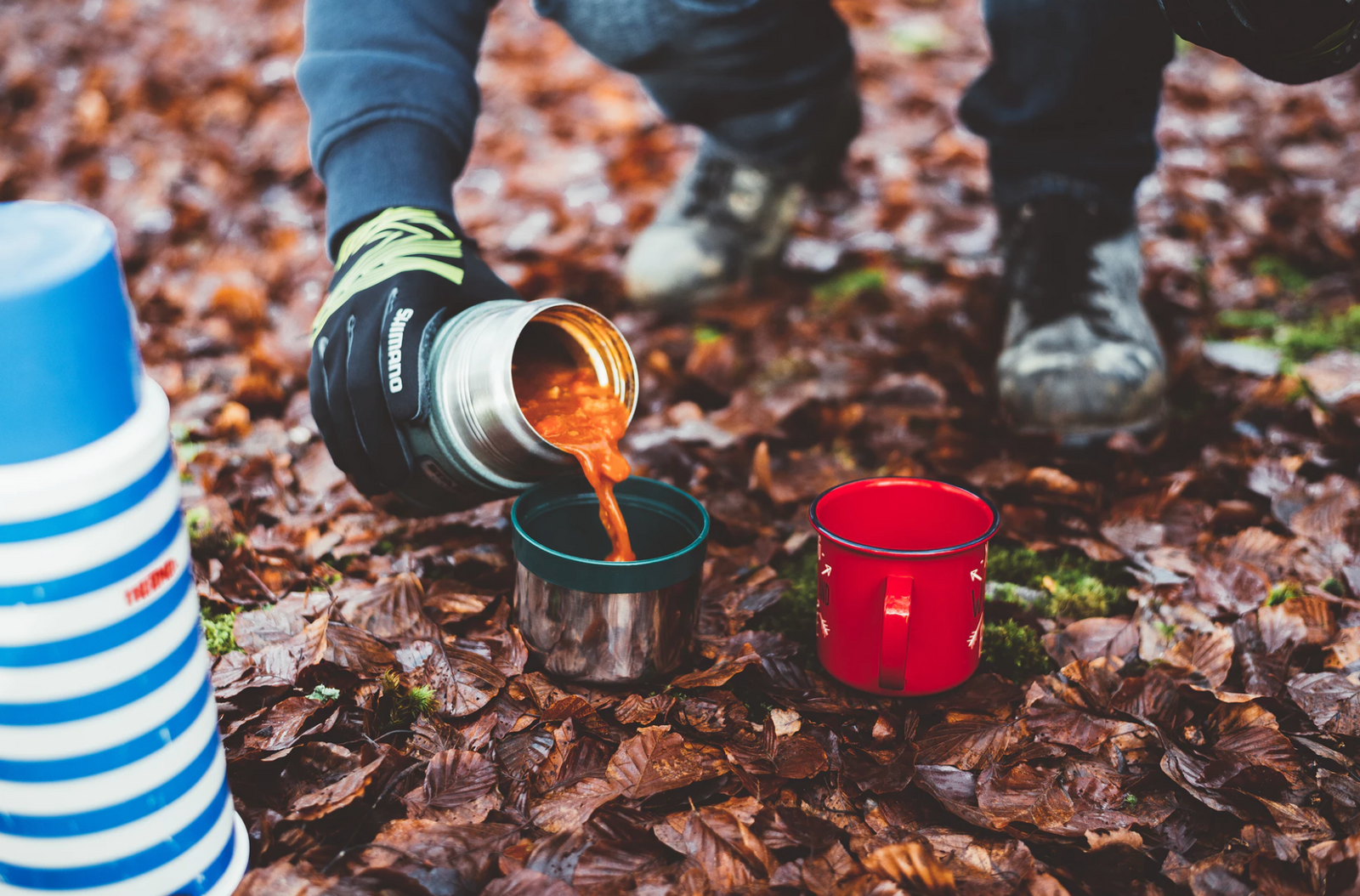
A great way to reduce waste at the campsite is to remove the food from boxes and containers as you pack them. Cereal and soda boxes are bulky and often occupy too much space. At the end of the camping experience, they will inevitably become garbage. Leave these at home and only take what you are going to consume.
If you are going to keep your food cold (I strongly suggest you do!), I recommend that you use the coolers to store your proteins as well. The best way to store your proteins is to vacuum seal them and place them at the bottom of the cooler surrounded by ice.
Something to also consider is water - an obvious camping necessity. Rather than purchasing small water bottles, consider bringing a reusable water bottle and a few 1-gallon containers filled with water. You can also purify water from the lake - use Swim Drink Fish’s Swim Guide to check the water quality! Overall, simply efficiently pack and have a great time.
4. Bring your camping food in bulk
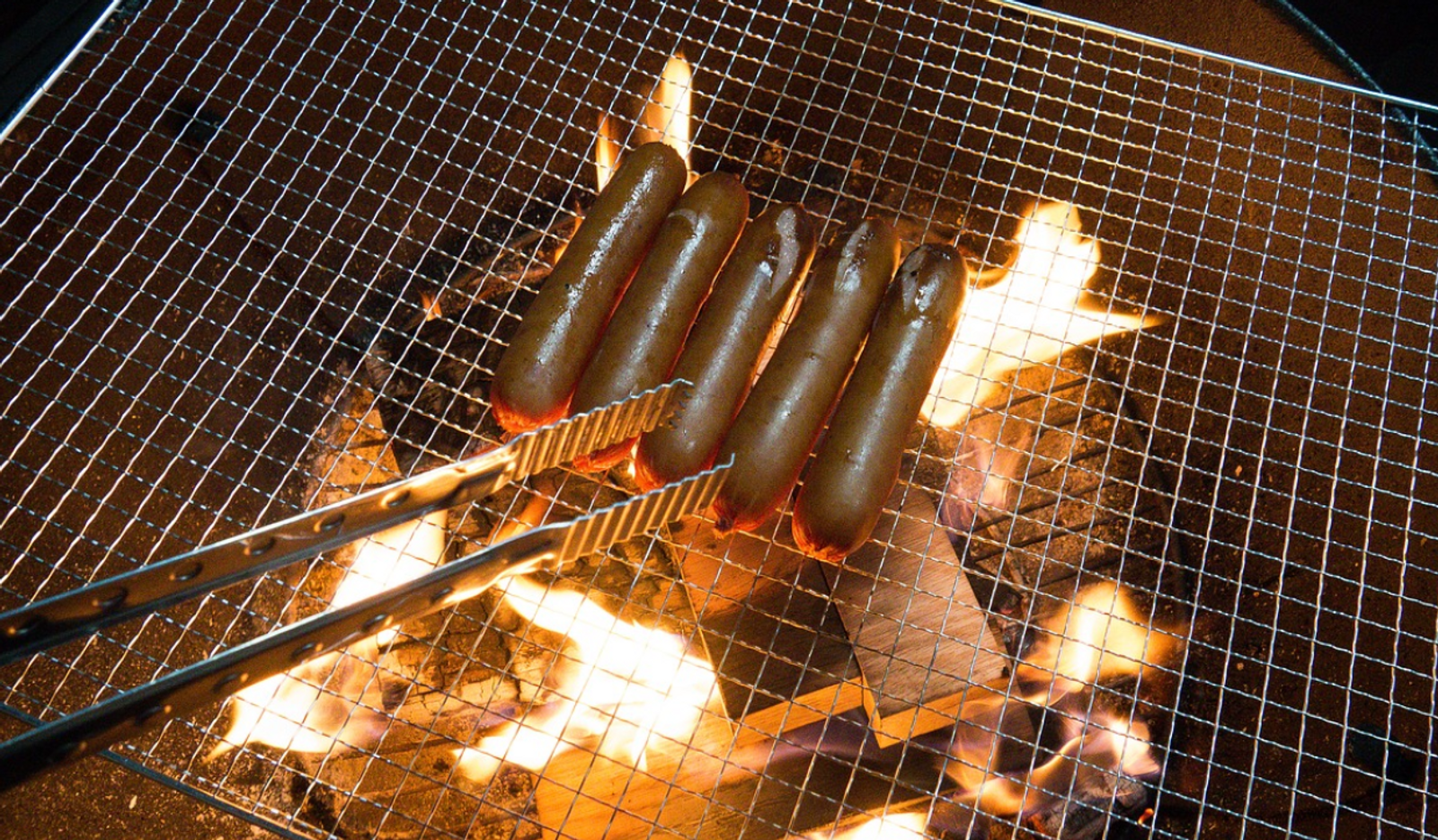
While we enjoy diversity, it’s actually cheaper and better for the environment to simplify your menu and buy it in bulk. Burgers and hot dogs will never grow out of style! Neither will stakes or chicken drums. Those are some of our favourite staples at our family camping trips!
5. Bring reusable materials
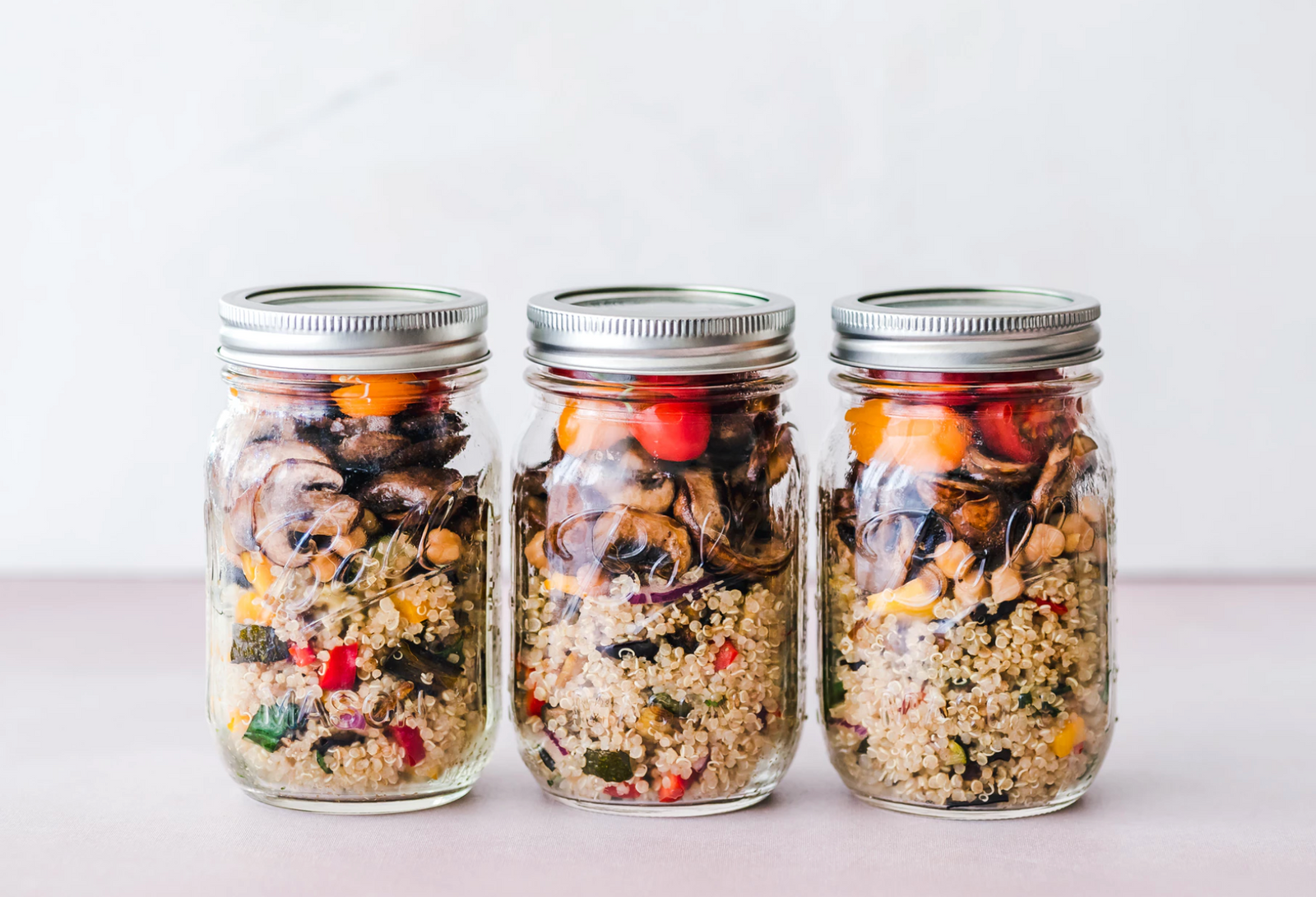
If you are bringing electronics, consider using rechargeable batteries to power them. Non-rechargeable batteries are extremely toxic for the environment. Also, rather than buying plastic or paper kitchenware, bring reusable ones from home. Finally, if you are going to cook with propane, consider using a refillable fuel canister rather than the pressurized propane cylinders. Propane cylinders are considered hazardous waste in Ontario.
One more thing - before you leave, make sure your fire is all out. There’s no bigger waste than a campfire still burning. It could lead to disaster. Be sure that the fire site is all drenched out before taking off!
All about GarbageDay
Along with his top five tips on how to leave no trace, we asked Wes a few questions about GarbageDay, a service that reminds Canadians when their garbage is due, educates them about what waste goes where, and gives them an opportunity to support environmentally conscious businesses. We’re including the full transcript of our interview with Wes below because it’s full of awesome and useful info.
How did GarbageDay get its start?

Our group at RBC Ventures was tasked with finding problems that people encountered on a regular basis. Through research and going out and talking to homeowners, one common thread was garbage day. Not only the scheduling, but also the confusion about what goes where and differences in how municipalities approach it.
There is a lot of knowledge out there, but a lot of it is in different places. What we do with GarbageDay is make it readily available to you, all in one place. Our reminders, along with our relevant content on where and how to dispose of certain items, will hopefully help you be more knowledgeable and aware of your waste footprint.
Who uses GarbageDay?
Homeowners and renters in Canada, especially those that have just moved to a new property who are unfamiliar with waste reduction and guidelines in their new municipalities. Take a new homeowner for example - right after a move, they are probably not focused on garbage or recycling at all; that’s just one of many examples where it’s very useful to have this information easily accessible.
GarbageDay started small with the messaging, “Never forget your garbage day again.” We didn’t expect it to grow to 120,000 users so quickly. We’re now in over 28 cities across Canada, including Ontario and the Greater Toronto Area, Alberta, and B.C.
Why would a user want to sign up for the app?
First, they’re sent free reminders right to their phone or email, when they want to receive them.
A second reason is continuous tips. They’re sent in a non-disruptive way that doesn’t bother you too much, once a week. It’s a useful reminder along with tips on how to be more eco-friendly and how to reduce your waste footprint.
Lastly, several municipalities are shifting how they approach their waste, and people are on higher alert than ever and more conscious about what they buy, what they’re throwing out, ways they can reuse, etc. I think we’re in a really good place where we can help people to understand all the information that’s constantly changing, keeping them up-to-date, and ultimately making them feel like a more responsible member of their community
How do you sign up?
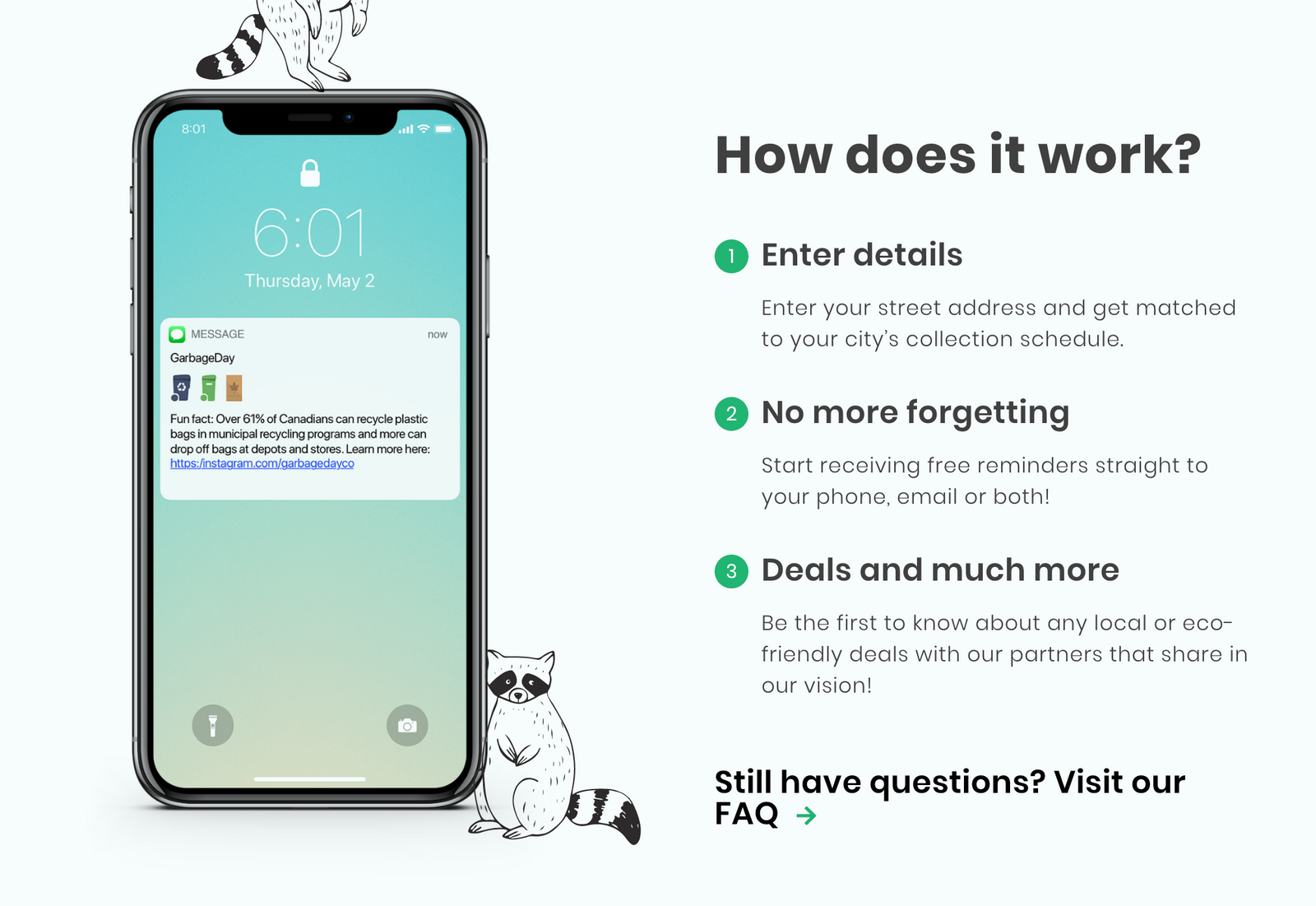
You can go to our website at www.garbageday.com and sign up in seconds! You only need your home address and either your email or phone number - however you’d like to be contacted. You can also choose when you would like to receive your reminder.
What do you think about the Marie Kondo mass-cleaning phenomenon, where so many people are now clearing out what they’ve accumulated over so many years?

We do get a lot of messages from our users saying, “I have this big bulky item” (whether it’s a furniture item or a used barbeque) - “How do I dispose of it?” And the one thing we keep on answering is - there are many ways you can go about this.
Your first option should really be, how do I REUSE? You can donate it to a verified charity, or give it to a neighbour. If that item is truly past the point of no return, then by all means, find out about your municipality’s bulky waste collection or find other waste management companies that can dispose of them in an eco-friendly way.
There’s also one more that people are now talking about: the whole idea of refusing. Maybe you don’t actually have to buy that thing. Especially things with limited shelf lives, like single-use plastics. You can use reusable tupperware or cutlery - something you already have - and refuse to buy those certain items that will end up as waste.
